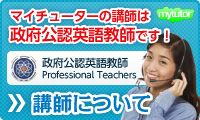Part 1 (Comprehension Questions):
- What is the speaker envious of?
- Who is that engineering manager who was rejected by both Twitter and Facebook before cofounding WhatsApp?
- What is WhatsApp?
- What are the three ideas the speaker is taking forward?
- According to the speaker, what should we highlight in looking for a job?
Part 2 (Express Yourself Questions):
- What are some of the worst jobs you can think of?
- What are some of the best jobs you can think of?
- How long do you want to work?
- Is it better to be a boss or an employee? Why?
- What would be the most satisfying job for you?
- What is one of the most exciting jobs you can think of? How about one of the most boring jobs?
- What kind of job do you want to get in the future? What kind of tasks will you have to do?
- Do you think what job someone has determines who they are?
- What is the most dangerous job?
- How difficult is it to get a job in your country?
- What company is the best to work for?
- What kind of jobs have you had (part-time and full-time)?
- Are there many good job vacancies for you in your country?
- What is your dream job?
- Are there jobs that are only for women or only for men?
- How many jobs do you think you’ll have in your life?
- Are there any jobs you would refuse to do, regardless of the pay?
- Who has the best job in the world? Why do you think so?
- Do you often check the jobs ads in newspapers or on the Internet?
- What kinds of jobs interest you most and least?
- Is the job market in your country growing?
- Does everyone have equal job opportunities in your country?
- What’s the best way to pass job interviews?
Part 3 (Activity):
Vocabulary Match
- folks 2. Dismay 3. DNA 4. Photosynthesis 5. Strategy
- frustrated 7. Scratch 8. Overlooked 9. Critic 10. Augmenting
- psychologist 12. Pinterest 13. Monopoly 14. Platform 15. Launch
A. the set of nongenetic traits, qualities, or features that characterize a person or thing
B. A person trained and educated to perform psychological research, testing, and therapy.
C. people in general
D. having a feeling of or filled with frustration; dissatisfied
E, the starting place, starting time, or status of a competitor in a handicap who has no allowance and no penalty
F. the complex process by which carbon dioxide, water, and certain inorganicsalts are converted into carbohydrates by green plants, algae, and certainbacteria, using energy
from the sun and chlorophyll
G. to start (a new venture) or promote (a new product)
H. to make larger; enlarge in size, number, strength, or extent; increase
I. an exclusive privilege to carry on a business, traffic, or service, granted by a government
J. to break down the courage of completely, as by sudden danger or trouble; dishearten thoroughly; daunt
K. a body of principles on which a person or group takes a stand in appealing to the public; program
L. a person who judges, evaluates, or criticizes
M. a plan, method, or series of maneuvers for obtaining a specific goal or result
N. The brand name of a photo-bookmarking website and mobile application, launched in 2010.
O. to fail to notice, perceive, or consider






